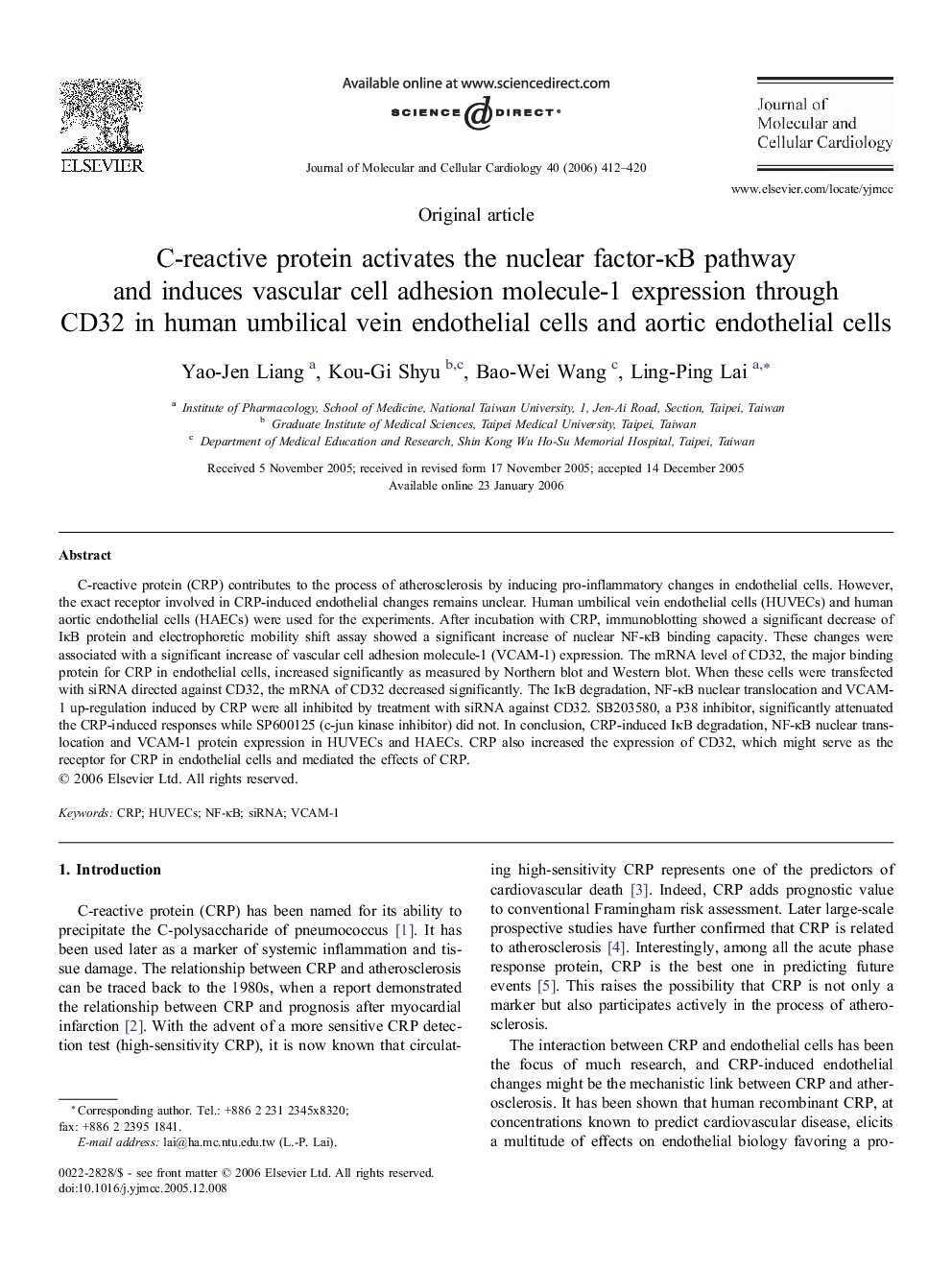| Article ID | Journal | Published Year | Pages | File Type |
|---|---|---|---|---|
| 2192542 | Journal of Molecular and Cellular Cardiology | 2006 | 9 Pages |
C-reactive protein (CRP) contributes to the process of atherosclerosis by inducing pro-inflammatory changes in endothelial cells. However, the exact receptor involved in CRP-induced endothelial changes remains unclear. Human umbilical vein endothelial cells (HUVECs) and human aortic endothelial cells (HAECs) were used for the experiments. After incubation with CRP, immunoblotting showed a significant decrease of IκB protein and electrophoretic mobility shift assay showed a significant increase of nuclear NF-κB binding capacity. These changes were associated with a significant increase of vascular cell adhesion molecule-1 (VCAM-1) expression. The mRNA level of CD32, the major binding protein for CRP in endothelial cells, increased significantly as measured by Northern blot and Western blot. When these cells were transfected with siRNA directed against CD32, the mRNA of CD32 decreased significantly. The IκB degradation, NF-κB nuclear translocation and VCAM-1 up-regulation induced by CRP were all inhibited by treatment with siRNA against CD32. SB203580, a P38 inhibitor, significantly attenuated the CRP-induced responses while SP600125 (c-jun kinase inhibitor) did not. In conclusion, CRP-induced IκB degradation, NF-κB nuclear translocation and VCAM-1 protein expression in HUVECs and HAECs. CRP also increased the expression of CD32, which might serve as the receptor for CRP in endothelial cells and mediated the effects of CRP.
